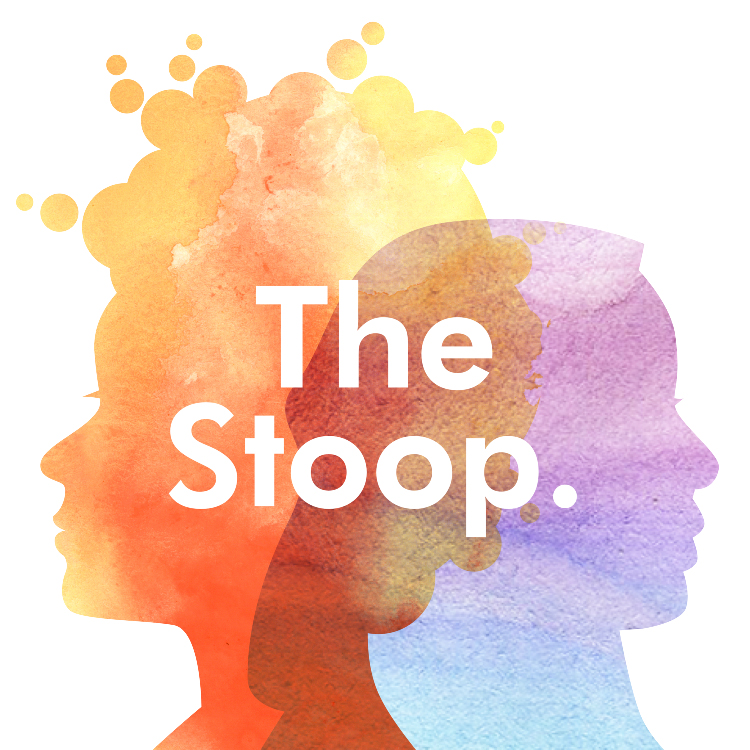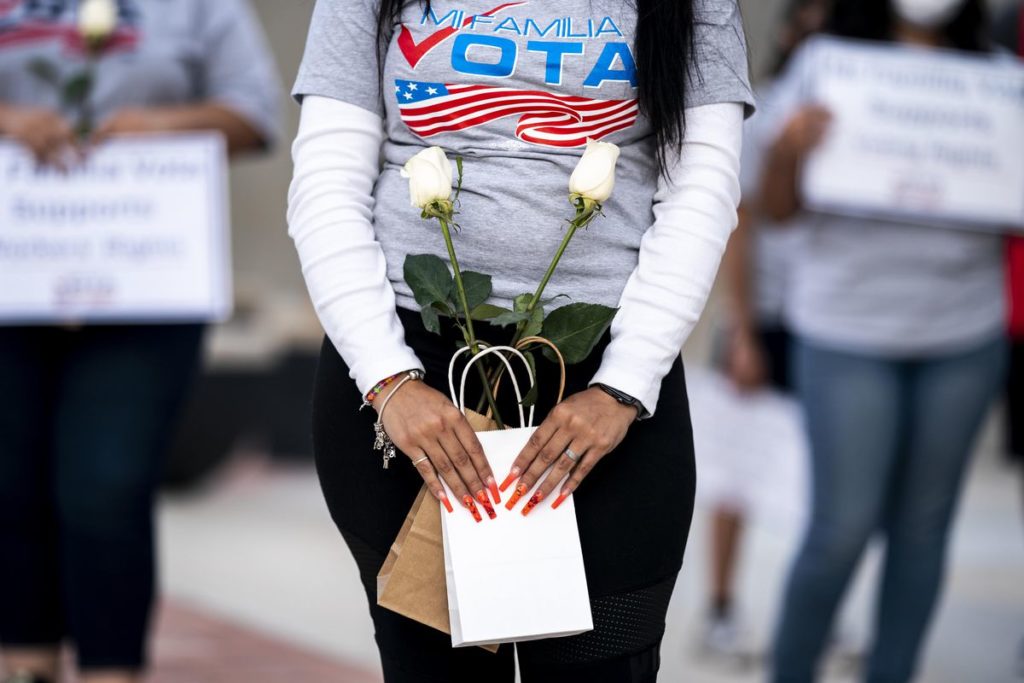Social Media & Identity Construction in Digital Spaces
Scholars & Thought Leaders
Lisa Nakamura
Nakamura’s first book, Digitizing Race: Visual Cultures of the Internet, discusses the visual cultures of the Internet and the type of information we seek online. She is interested in the emergence and immense popularity of racially themed websites that are created by for and abour people of color. She is interested in what she terms the “racio-visual logic of the internet”.

Andre Brock
Brock’s scholarship examines racial representation in social media, video games, Black women and weblogs, whiteness and technoculture, including innovative and groundbreaking research on Black Twitter. He asks where Blackness manifests in the ideology of Western technoculture. Using critical technocultural discourse analysis (Brock, 2018), Afro-optimism, and libidinal economic theory, this Databite employs Black Twitter as an exemplar of Black cyberculture: digital practice and artifacts informed by a Black aesthetic.

Charlton McIlwain
Charlton McIlwain is Vice Provost of Faculty Engagement & Development at New York University, and Professor of Media, Culture, and Communication at NYU’s Steinhardt School. Dr. McIlwain’s scholarly work focuses on the intersections of race, digital media, and racial justice activism.
- Black Software: The Internet & Racial Justice, from the Afronet to BLM (2019)
- Race, Appeal: How Political Candidates Invoke Race in US Political Campaigns (2016)
- Talk with Data and Society: Professor Charlton McIlwain shares African Americans’ role in the Internet’s creation and evolution, illuminating both the limits and possibilities for using digital technology to push for racial justice in the United States and across the globe. His book, “Black Software: The Internet & Racial Justice, from the AfroNet to Black Lives Matter,” shows that the story of racial justice movement organizing online is much longer and varied than most people know.
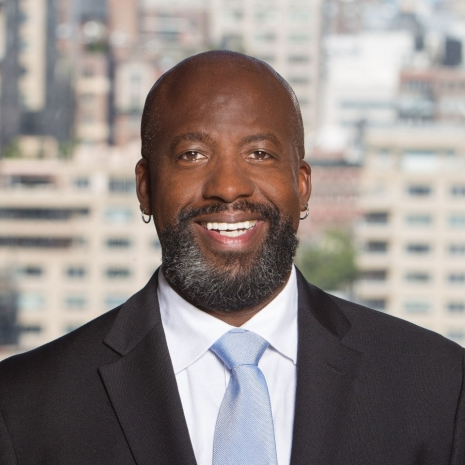
Ruha Benjamin
Associate Professor of African American Studies at Princeton University, founder of the JUST DATA Lab, and author of Race After Technology: Abolitionist Tools for the New Jim Code (Polity 2019) and editor of Captivating Technology: Reimagining Race, Carceral Technoscience, and Liberatory Imagination in Everyday Life (Duke 2019) among many other publications. Ruha’s work investigates the social dimensions of science, medicine, and technology with a focus on the relationship between innovation and inequity, health and justice, knowledge and power.
- Race After Technology (2019)
- Data and Society conversation (Links to an external site.): Ruha Benjamin discusses the relationship between machine bias and systemic racism, analyzing specific cases of “discriminatory design” and offering tools for a socially-conscious approach to tech development. In “Race After Technology: Abolitionist Tools for the New Jim Code,” Ruha Benjamin cuts through tech-industry hype, from everyday apps to complex algorithms, to understand how emerging technologies can reinforce White supremacy and deepen social inequity.

Ramon Amaro
Lecturer in the Department of Visual Cultures at Goldsmiths, University of London, as well as in the Centre for Research Architecture where he teaches the MA special subject Conflicts & Negotiations and the BA courses Fact of Blackness and Space and Time. Previously, he was a Research Fellow in Digital Culture at Het Nieuwe Instituut in Rotterdam and a visiting tutor in Media Theory at the Royal Academy of Art (KABK), The Hague. Ramon completed his PhD in Philosophy at Goldsmiths, while holding a master’s degree in Sociological Research from the University of Essex and a BSe in Mechanical Engineering from the University of Michigan, Ann Arbor.
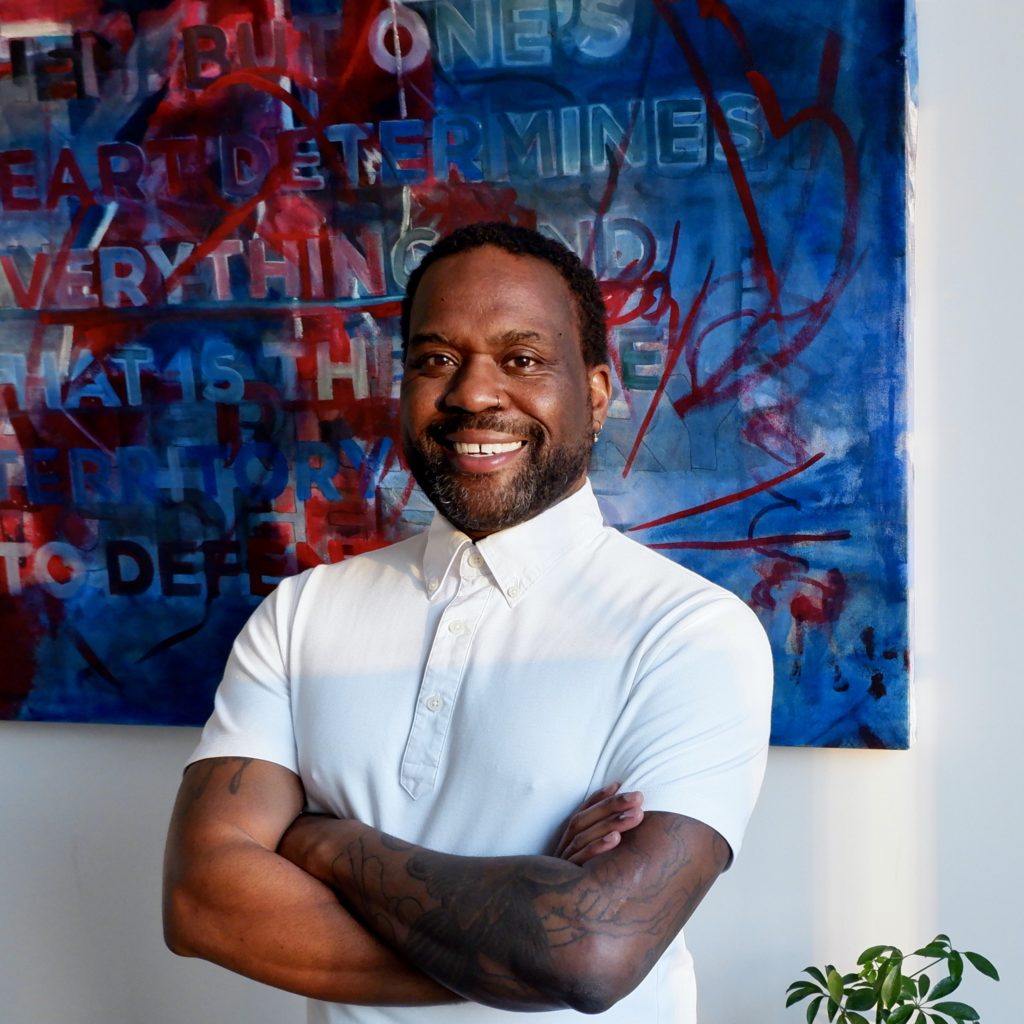
Kara Keeling
Keeling’s research focuses on Third Cinema, African American, African, and feminist film and media; theories and practices of Black liberation; radical imaginaries, with broader interests in critical theory, cultural studies, Africana studies and gender and sexuality studies.
- Queer times, black futures (2019)
- Conference at Brown University entitled, RISK
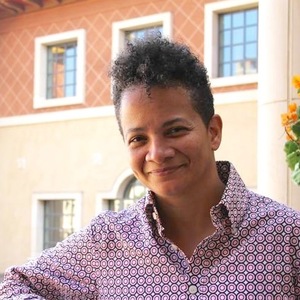
Jasmine McNealy
McNealy studies media, information, and emerging technology, with a view toward influencing law and policy. Her current research focuses on privacy, surveillance and data governance with an emphasis on marginalized communities.

Safiya Noble
In Algorithms of Oppression, Safiya Umoja Noble challenges the idea that search engines like Google offer an equal playing field for all forms of ideas, identities, and activities. Data discrimination is a real social problem; Noble argues that the combination of private interests in promoting certain sites, along with the monopoly status of a relatively small number of Internet search engines, leads to a biased set of search algorithms that privilege whiteness and discriminate against people of color, specifically women of color.
- A Future for Intersectional Black Feminist Technology Studies. Scholar & Feminist Online, 13(3), 1-8. (2016)
- A Conversation with Data and Society
- Algorithms of oppression (2018)

Sareeta Amrute
Sareeta Amrute is an anthropologist who studies race, labor, and class in global tech economies. She is currently investigating sensation and social movements among Asian immigrants in the United States and digital payments in India. Her recent book, Encoding Race, Encoding Class: Indian IT Workers in Berlin, is an account of the relationship between cognitive labor and embodiment, told through the stories of programmers from India who move within migration regimes and short-term coding projects in corporate settings.
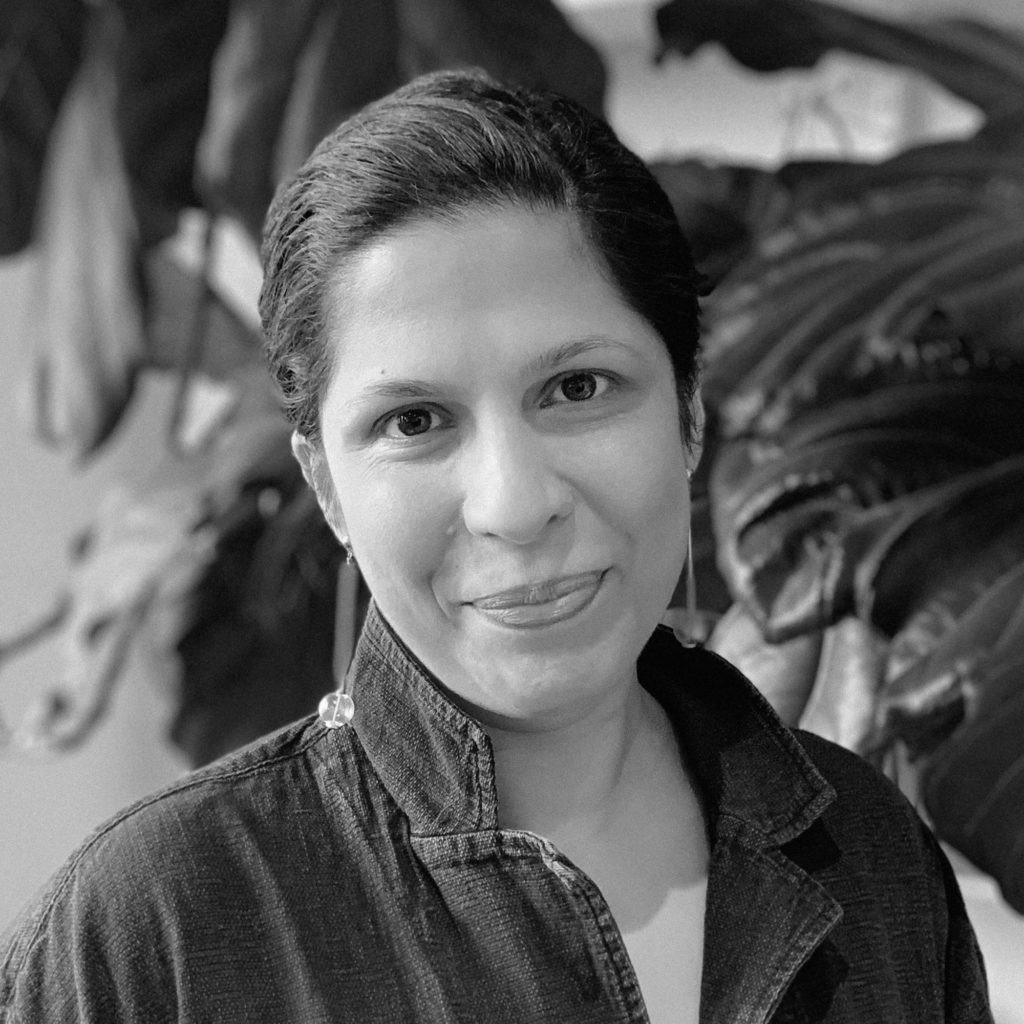
Sarah Florini
Sarah Florini is an Assistant Professor of Film and Media Studies in the Department of English at Arizona State University. She earned a PhD in Communication and Culture from Indiana University. Her research explores the intersections of Black American cultural practices and emerging technologies.
Among the first scholars to publish on Black Twitter and Black podcasting, her work has appeared in New Media and Society, Critical Studies in Media Communication, and Television and New Media. Her current monograph, Beyond Hashtags: Racial Politics and Black Digital Networks, is forthcoming on New York University Press in fall 2019.

Moya Bailey
Moya Bailey is a scholar of critical race, feminist, and disability studies. Her work focuses on marginalized groups’ use of digital media to promote social justice as acts of self-affirmation and health promotion. She is interested in how race, gender, and sexuality are represented in media and medicine. She currently curates the #transformDH Tumblr initiative in Digital Humanities. She is also the digital alchemist for the Octavia E. Butler Legacy Network.
- Misogynoir transformed: Black women’s digital resistance (2021)
- Work in the Intersections: A Black Feminist Disability Framework

Simone Browne
Simone Browne is Associate Professor in the Department of African and African Diaspora Studies at the University of Texas at Austin. She is also Research Director of Critical Surveillance Inquiry (CSI) with Good Systems, a research collaborative at the University of Texas at Austin. CSI works with scholars, organizations and communities to curate conversations, exhibitions and research that examine the social and ethical implications of surveillance technologies, both AI-enabled and not. With a focus on algorithmic harm and tech equity, we continually question “what’s good?” in order to better understand the development and impact of artificial intelligence.
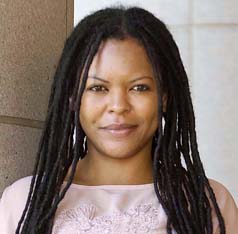
Nancy Baym
Nancy Baym studies how people understand and act with new communication technologies in their relationships. A pioneer in the field of internet research, Baym wrote some of the first articles about online community in the early 1990s. With Jean Burgess, she is the author of Twitter: A Biography (2020, NYU). Other books include Playing to the Crowd: Musicians, Audiences, and the Intimate Work of Connection (2018, NYU), Personal Connections in the Digital Age (2010, Second Edition 2014, Polity), Internet Inquiry: Conversations About Method (co-edited with Annette Markham, 2010, Sage), and Tune In, Log On: Soaps, Fandom and Online Community (2000, Sage). She was a co-founder of the Association of Internet Researchers and served as its second president.
- Personal Connections in the Digital Age (2010)
- Playing to the Crowd (2018)
- Twitter: A biography (2020)
- Personal Connections in the Digital Age (book lecture)

Gina Neff
Gina Neff is Professor of Technology & Society at the Oxford Internet Institute and the Department of Sociology at the University of Oxford. She studies the future of work in data-rich environments. Professor Neff leads a new multinational comparative research project on the effects of the adoption of AI across multiple industries. She is the author of Venture Labor (MIT Press, 2012), which won the 2013 American Sociological Association Communication and Information Technologies Best Book Award; and with Dawn Nafus Self-Tracking (MIT Press, 2016).
- Venture Labor (2012)
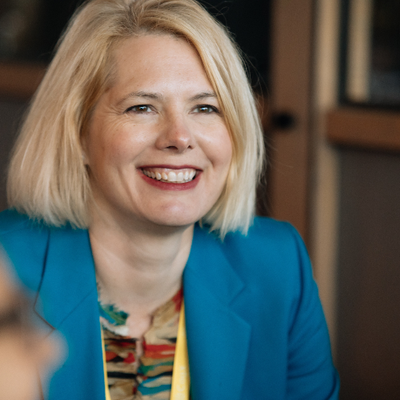
Lori Kido Lopez
Lori Kido Lopez is Associate Professor in Media and Cultural Studies and a member of the Program Advisory Committee of Asian American Studies. Her research examines the way that minority groups such as women, racial minorities, and queer communities use media in the fight for social justice. She is interested in struggles to improve the representation of disenfranchised groups within mainstream media, as well as the different ways that grassroots/activist media, digital media, and consumer culture all can play a role in transforming identities and communities. Her book Asian American Media Activism: Fighting for Cultural Citizenship (2016, NYU Press) examines the efforts of Asian Americans to impact the way that their community has been represented.Her newest research examines Hmong Americans and the culturally specific ways that they are participating in the production and consumption of digital media, particularly considering the gendered dimensions of Hmong media cultures.

Apryl A. Williams
Apryl A. Williams is an Assistant Professor of Communication & Media and an affiliate with the Digital Studies Institute at the University of Michigan. Williams is also a Faculty Associate at the Berkman Klein Center for Internet & Society at Harvard University and an affiliated researcher at NYU’s Center for Critical Race & Digital Studies. As a multidisciplinary scholar, Williams studies the experience of race and racism online. Her work positions the Internet as an inherently racialized space with its own processes, norms, and rituals of racial meaning-making. Williams’ critical race perspective on the Karen and BBQ Becky memes has been widely cited in popular press including but not limited to Time Magazine, On the Media, Slate, and Detroit NPR.

Ryan Miller
Assistant Professor of Educational Leadership and Higher Education Program Director at the University of North Carolina at Charlotte, where he teaches courses on college student development, student affairs administration, and higher education leadership. He received the 2016 Melvene D. Hardee Dissertation of the Year award from NASPA for his research about LGBTQ students with disabilities

Zizi Papacharissi
Her work focuses on the social and political consequences of online media. She has published nine books, over 70 journal articles and book chapters, and serves on the editorial board of fifteen journals. Zizi is the founding and current Editor of the open access journal Social Media & Society.

Film & Video
How influencers and social media changed the dance industry (2020)
A commercial dancer — the performers who animate music videos, film and TV — once needed the right connections, the “right” look, and an agency to access coveted jobs seemingly reserved for those deemed most marketable for mainstream audiences. Then the internet happened. We talked to L.A. dancers who were once deemed nontraditional but are now breaking into the mainstream on video-centric platforms, including YouTube, Instagram and TikTok, to become celebrities in their own right.
Source: Los Angeles Times
Has Social Media Harmed These Teens? (2021)
American teens from diverse backgrounds respond to prompts and debate whether social media has had a negative or positive impact on their lives. Roundtable discussion. Teenagers discuss being pro/anti social media, inequalities in algorithms and how SM impact their lives.
Source: Jubilee (Opinion-based YouTube channel that allows various different people to state their opinion on various topics)
Iraq’s Social Media Martyrs | Unreported World
Reporter Sahar Zand and Director Katie Arnold are in Iraq to meet its new social media stars. Huge nationwide protests against corruption have been making headlines, but these young millennials are taking on power in a different way, by celebrating beauty, fashion and rap. They’ve got millions of followers, but, as Unreported World finds out, fame can have deadly consequences.
Source: Unreported World
How Do Different Social Media Platforms Affect Your Mood? (2017)
Do a quick Google search on how social media affects your mood, and the results make it seem like all the social media platforms will plunge you into depression. Facebook shows everyone’s perfect life and exotic vacations. Expertly curated selfies abound on Instagram. But, if you look at the actual research, the results aren’t that simple.
Source: Above the Noise | PBS Digital Studios
The Reason #BlackTwitter Exists (And Is Totally Awesome) (2019)
From seemingly choreographed takedowns to hilarious commentary on culture and current events, Black Twitter continues to be a source of endless debate, research, and of course endless cackles. In this episode, we deep dive into how Black Twitter exists on the platform and the unspoken (but somehow still agreed upon) rules of engagement.
(Social Media; Visuals and Being Visible)
Source: ELLE
Experiencing Racism On TikTok | ‘Go Back To Where You Came From’ (2020)
Naomi is a student based in London and of Nigerian heritage. Her popularity on TikTok means that she is subjected to racial abuse on an almost daily basis and is regularly told to ‘go back home’.
Source: BBC Three
ContraPoints – Youtuber, ex Philosopher (2019)
An Instagram Star At A Crossroads (2019)
Tim Chau is an 18-year-old Asian-American with more than 4m followers on Instagram. He lives online, grabbing his phone first thing in the morning and even taking baths with it sometimes. Although Tim usually shares funny memes, he occasionally posts about mental health. In exploring his reasons for these posts, we discover he has created a different persona online than in real life.
Source: The Guardian

Books & Articles
A Teen Influencer Who’s Deaf Says Social Media Has A Ways To Go When It Comes To Accessibility (2020)
“In this week’s newsletter: How Scarlet Waters used TikTok, an app built on music and bytes, to make people soberly aware about deafness.”
By: Tanya Chen
Source: BuzzFeed
Anti-Racism Voices
“A selection of activists, journalists, educators and leaders to learn from. Please follow and amplify their work, and pay for their services and wisdom. We are not owed their learnings, nor efforts.”

Google has been allowing advertisers to exclude nonbinary people from seeing job ads (2021)
Dozens of advertisers instructed the company to not show their ads to people of ‘unknown’ gender, meaning people who had not identified themselves as male or female.
Source: The MarkUp
By: Jeremy B. Merrill
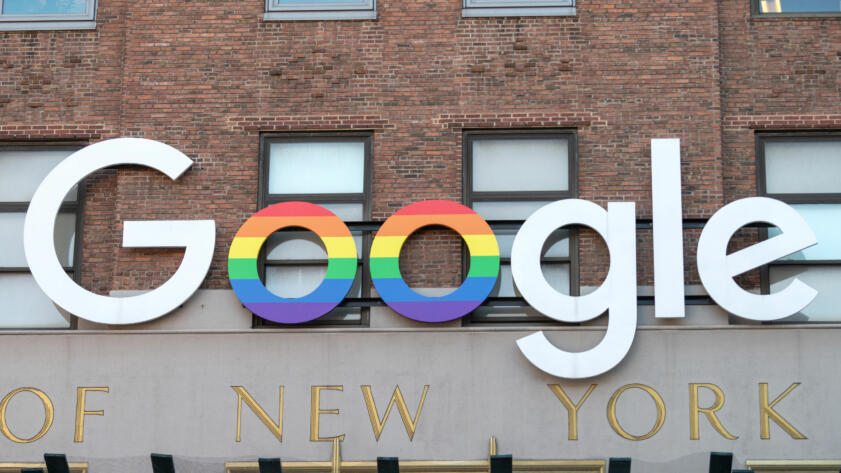
Youtube is still restricting and demonetizing LGBT videos (2018)
YouTube denies that the use of the words ‘trans’ or ‘transgender’ triggered instant demonetization
Source: The Verge

Anxiety from social media around the anti-racism movement (2020)
By: Christen A. Johnson

How Fake News Aimed At Latinos Thrives On Social Media (2020)
Democrats are paying attention after a surprising number of Latino voters in swing states supported Trump.
Source: Vox
Facebook Cannot Separate Itself From the Hate It Spreads (2020)
When Sheryl Sandberg, Facebook’s chief operating officer, released a statement announcing that the company was going to make changes to address the issues of hate on its platform, she said the company had chosen to act “because it’s the right thing to do.” We’d be wise to take this statement with a grain of salt. Even a cursory look at Facebook’s “mistakes,” as they refer to them (or “Facebook’s business model” as it is known to most everyone outside of the company), includes redlining users, enabling age discrimination in hiring, offering “Jew haters” as an advertising category, promoting the “boogaloo” movement, fueling genocide in Myanmar, and aiding Duterte’s rise in the Philippines. It’s not so much that the problem of hate on Facebook is new, so much as that each new revelation is met mostly with an apology and a “promise” to do better moving forward. Facebook has been apologizing and promising this way since at least 2007. Yet the “mistakes” continue.
By Chris Gilliard
Source: OneZero

‘No One’s Ever Talked to Me About This Before’ (2021)
Social media creators are helping women and people of color identify possible symptoms of A.D.H.D., a disorder most often diagnosed in white boys. Many women and people of color are only now learning, after years or even decades of difficulty, that they may meet the diagnostic criteria for A.D.H.D., thanks in part to a wave of creators on social media trying to spread awareness. These creators are sharing webcomics (like Pina Varnel, 31, who is known as the A.D.H.D. Alien on Twitter), videos (Dani Donovan, 30, does so on TikTok, and Jessica McCabe, 38, on YouTube), newsletters (like 26-year-old Rach Idowu’s Adulting With A.D.H.D.), blogs (such as 36-year-old René Brooks’s Black Girl Lost Keys) and memes (“tell me you have A.D.H.D. without telling me you have A.D.H.D.”) that aim to help people identify symptoms and find community.
By Nicole Clark
Source: New York Times
Women vs Capitalism: Why We Can’t Have It All in a Free Market Economy (2019)
The free market as we know it cannot produce gender equality. This is the bold but authoritative argument of Vicky Pryce, the government’s former economics chief.
Women vs Capitalism is a fresh and timely reminder that, although the #MeToo movement has been hugely important, empowerment of the mind will not achieve full power for women while there remains economic inequality. Pryce urgently calls for feminists to focus attention on this pressing issue: the pay gap, the glass ceiling, and the obstacles to women working at all. Only with government intervention in the labor market will these long-standing problems finally be conquered.

Feminist Connections: Rhetoric and Activism across Time, Space, and Place.
Katherine Fredlund, Kerri Hauman, and Jessica Ouellette (Eds.)
“Highlights feminist rhetorical practices that disrupt and surpass boundaries of time and space”

Front Pages, Front Lines: Media and the Fight for Women’s Suffrage (2020)
Front Pages, Front Lines offers new research on media issues related to women’s suffrage, incorporating innovative approaches to social movements and counter-movements, media theory, memory studies, and historiography. Aiming to correct past oversights and treating suffrage activism as part of broader campaigns for social transformation, the collection includes overlooked topics such as the participation of African American and religious media, coverage of black suffragists, suffragist and anti-suffrage rhetorical strategies, the role of social and media elites, and the impact of white masculinity on press coverage.
Linda Steiner, Carolyn Kitch, and Brooke Kroeger (Eds.) 2020.
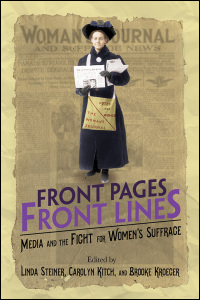
The Gender of Latinidad (2020)
Angharad N. Valdivia. Wiley-Blackwell, 2020.
Latina/os have seen increased visibility in the media in the past several years, especially in feature-length films, network television programs, and various digital platforms. The Gender of Latinidad: Uses and Abuses of Hybridity explores Latina/o visibility—analyzing presence, production, and interpretation throughout various media.
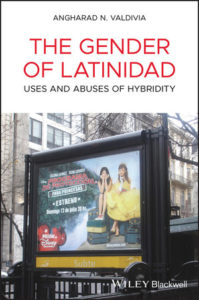
Advancing Digital Literacy in Tech
Data & Society, Jessie Daniels and Mutale Nkonde, Darakshan Mir
Data & Society 2018-19 Fellows Jessie Daniels and Mutale Nkonde and 2017-18 Fellow Darakhshan Mir urge tech companies to adopt racial literacy practices in order to break out of old patterns.
Conceived and launched under Data & Society’s fellowship program, this paper moves past conversations of implicit bias to think about racism in tech at a systems-level. The authors offer strategies grounded in intellectual understanding, emotional intelligence, and a commitment to take action.
Podcasts
See Something, Say Something
Episode 45, March 2nd 2018, Let’s talk about sex, Habibi
[Summary: Randa Jarrar is an essayist, professor, and writer of two books of fiction, “A Map Of Home” and “Him, Me, Muhammad Ali.” She stops by the show to talk to Ahmed about her work on sexuality, cultural appropriation, and the humor of human vulgarity. She reads from her latest Bitch Media piece on the politics of consensual domination in sex and also chats about the “thousands of emails from Beckys” she’s received for her work and teaching her son about consent.]
Episode 39, March 30th 2018: The White Terrorist Double standard
[Summary: What does calling white radicals ‘terrorists’ accomplish? Is it a pandering rhetoric used by white liberals? Joining us to unpack media semantics and government policing around these issues are BuzzFeed’s VP Legal and Associate General Counsel Nabiha Syed with BuzzFeed News reporter Talal Ansari. Later we talk with Murtaza Mohammad Hussein, a reporter at The Intercept, to gut check the trial of Noor Salman, the wife of the Pulse shooter who is facing life in prison.]
February 27th 2020, M Train: Cyborgs, Activism, and the Muslim Vote (Live! From Brooklyn)
[Summary: We’re coming to you live! For the second episode of M-Train —the new six-part miniseries from See Something, Say Something and BRIC Radio — we hosted a panel discussion at the BRIC Ballroom centered on Muslims in politics. Our guests for the night were Shahana Hanif, New York City Council Candidate, Sadaf Jaffer, Mayor of Montgomery County in New Jersey (and first Muslim woman elected mayor in America), and Mohammad Missouri, Executive Director of JetPAC. We talked about the Muslim bloc swinging leftwards, confronting Islamophobic trolls who live in your communities, and the challenges of representing a group as diverse as American Muslims.]
May 8th 2020, M Train: Death and Grieving in Muslim New York
[Summary: Burying a loved one is never easy. But for Muslims New Yorkers, the price of land, gentrification, and ritual practices complicates an already difficult process. As a result, most Muslims in the 5 boroughs tend to be buried hours away from their homes, at cemeteries in Long Island or New Jersey. With the death rate in NYC soaring due to COVID-19, Muslim funeral homes have borne the burden of a crisis that developed long before quarantine. How does one grapple with saying goodbye to our loved ones when burial is less than ideal?
To answer these questions, we speak to housing policy expert Lena Afridi about losing and burying her father over a year ago. Then, Imam Khalid Latif of ICNYU shares some of the pressures that funeral homes in New York are facing during the COVID-19 crisis.
M Train releases bi-weekly and each episode focuses on New York City metro area and the stories of American Muslims that can be found on and off the subway.]

Anything for Selena
[Growing up along the US-Mexico border, Maria Garcia felt torn between her two identities as Mexican and American. But then, something changed her life. She discovered Selena Quintanilla— the Mexican-American pop icon who proved she didn’t have to choose. In the premiere episode of “Anything for Selena,” host Maria Garcia explores how Selena helped Maria find her own place in the world.]
[Nearly 30 years ago, Sir-Mix-A-Lot’s “Baby Got Back (I Like Big Butts)” hit the airwaves to the delight and shock of listeners. Today, the obsession with big butts is still strong with idols like Cardi B and Beyonce. It has also permeated white culture, with Kim Kardashian “breaking the internet” and butt selfie queen Jen Selter. Maria has a theory about how big butts went from taboo to obsession–and it involves Selena and Jennifer Lopez. She uncovers that booty politics is ultimately about race and brings us to a long overdue conversation about anti-blackness within the Latinx community.]
[Selena is often called the “Queen of Tejano music.” In the 1990s, she brought this underdog genre to international heights. Tejano award shows were glitzy affairs and Tejano radio DJs were like rock stars in Texas and the Southwest. Even the New York Times called it the fastest-growing Latino genre in the country. But when Selena died, Tejano went from boom to bust. The story of Tejano’s decline isn’t so simple, though. Maria discovers that it’s a story of immigration, money and how two often-ignored groups were pitted against each other.]

Code Switch, NPR
January 19th, 2021, The Past Four Years
[Summary: The Trump administration is coming to a close, but which elements of the Trump era are here to stay? We spoke to NPR’s White House reporter, Ayesha Rascoe, about where we were when Donald Trump took office — and what he’s left behind.]
February 2nd, 2021, Who’s Black Enough ‘For Reparations’ ?
[Summary: Black History Month is here, which means we’re diving into big, sticky questions about what exactly it means to be Black. So this week on the show: Who is ‘Black enough’ for reparations? Because you know…we got some bills to pay.]

The Stoop – Stories of Black Identity
Episode 1: Nice tribal ear. Now take it off.
An exploration into the controversy over appropriation. Of African cultures by African Americans. Are African Americans appropriating when they wear a dashiki, trinal markings, or a head wrap?
Episode 4: The problem with “sounding white”.
What’s it mean when someone says you ‘sound white’? In this episode we explore voice and unpack what it means linguistically, socially and professionally when you’re black but supposedly ‘sound white’.
Episode 17: Black, Queer and Free
Black homophobia is rea – and we meet two influential people who are fighting it- each in their own inspiring way.
Episode 34: The Black Introverts
Why might things be different for a ‘Black Introvert’? When writer Sequoia Holmes broke it down in her essay “Black Women aren’t allowed to be introvert” we wanted to stoop this out some more.
Episode 37: Together and apart
We’re getting into the myths surrounding the coronavirus and discussing how Covid-19 could have a different impact on black people.
